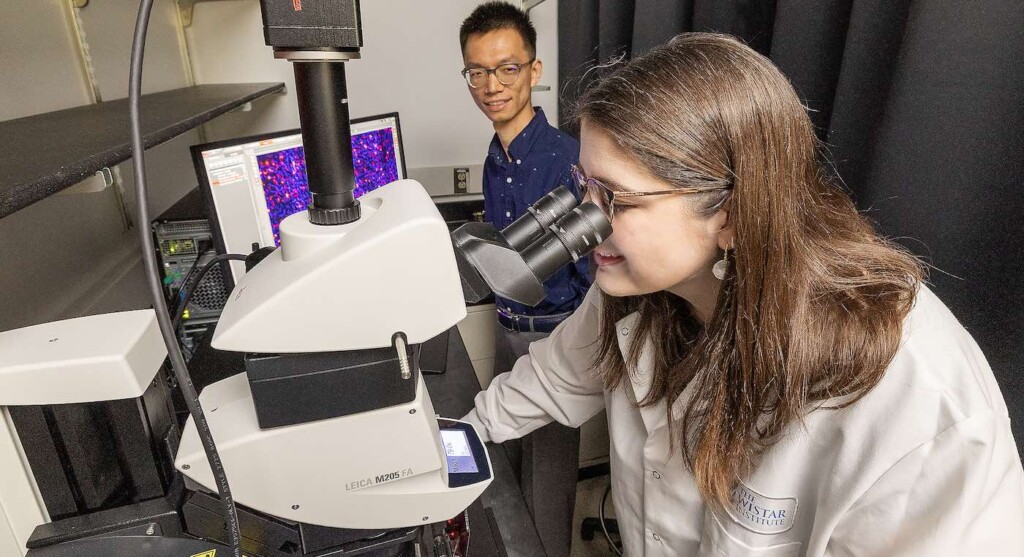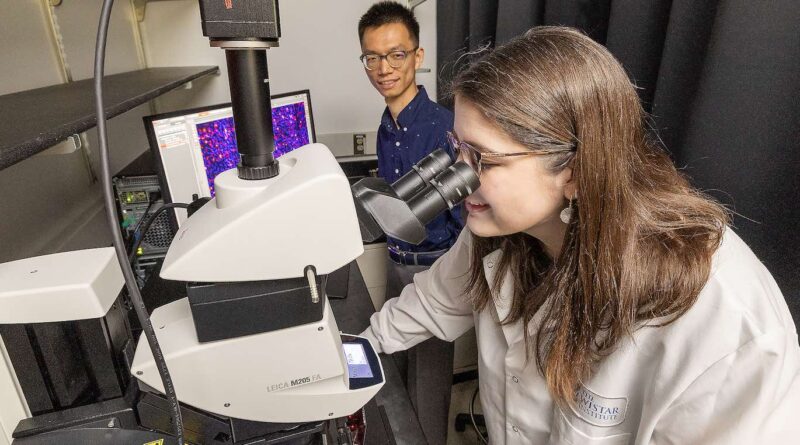New Solution for Metastatic Ovarian Cancer Based on Approach From Nearly a Century Ago Shrinks Tumors

A novel combination resulted in tumor regression during preclinical lab testing by scientists at the nonprofit Wistar Institute in Philadelphia.
Ovarian cancer is the deadliest gynecological cancer, with low survival rates because it is naturally resistant to chemotherapy, so its presence is difficult to combat anywhere in the body.
The cancer tends to metastasize through peritoneal fluid in the peritoneal cavity—around the stomach and intestines—which is naturally immunosuppressive, so limits the body’s response to any tumors.
To combat the challenging cancer, Nan Zhang, Ph.D. and his collaborators turned to a possible solution from nearly a century ago.
In the late 1800s & early 1900s, New York surgeon William B. Coley achieved a cure rate greater than 10% for some cancers by injecting patients with dead pathogens. Scientists later reasoned that this anti-cancer effect was the result of the immune system’s activation of myeloid cells—the plentiful cells in the peritoneal cavity—that when activated can mount a cancer-killing response.
Building on the concept, Zhang’s team designed an approach that specifically activates myeloid cells within the peritoneal cavity through combination treatment with beta-glucan, a pathogen-derived activator of myeloid cells, and interferon-gamma (IFNγ).
Preliminary reports suggest the approach can work to reverse the immunosuppression around tumors, leading to positive results.
DID YOU KNOW? Frequent Aspirin Use is Linked to Lower Risk of Ovarian Cancer in Women Most Likely to Develop the Disease
Their findings, published in The Journal of Experimental Medicine, confirmed that this combination therapy worked when tested in preclinical lab models. After treating metastatic ovarian cancer models with both β-glucan and IFNγ, total tumor burden “shrank substantially”, relative to controls.
The disease reversal was consistent even in chemotherapy-resistant strains of ovarian cancer, which the team also modeled.
Supported by grants from the National Institutes of Health, the team announced their new approach on November 21, saying their discovery for treating ovarian cancer “shrinks tumors and improves survival rates, while simultaneously making tumors more receptive to chemotherapy treatment”.
“Our work has opened the door to a possible new method of treating a particularly aggressive cancer,” said Brennah Murphy, Ph.D., first author of the paper. “Ovarian cancer is infamous for resisting treatment, but we’ve shown—at the preclinical level—our treatment overcomes that resistance.”
OVARIAN CANCER REVELATION: Vitamin D Could Help Protect Women Against and Even Reverse Ovarian Cancer – Study

“This is the first time researchers have been able to indirectly target ovarian cancer cells in peritoneal fluid by inducing an immune reaction, in preclinical models,” said Zhang, an assistant professor in the Wistar Institute’s Molecular and Cellular Oncogenesis Program.
“We look forward to taking this research further—particularly our findings on the role of IL27—so we can continue to identify other strategies to improve this new anti-ovarian-cancer approach.”
ANNOUNCE THE BREAKTHROUGH By Sharing With Patients On Social Media…

